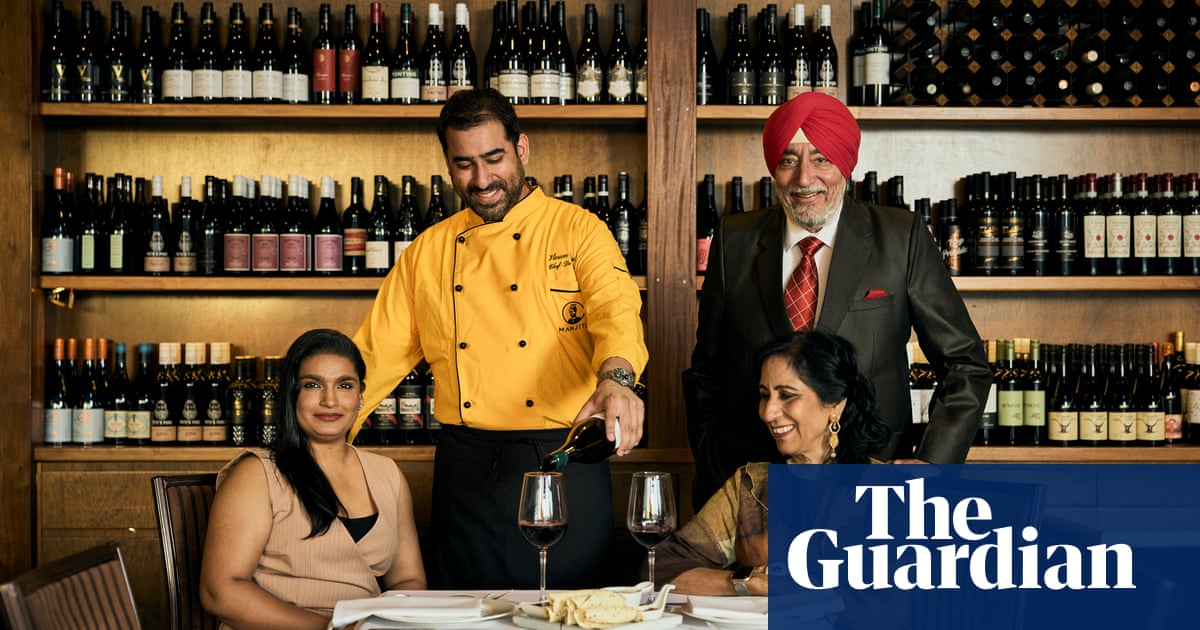Family businesses account for about70% of Australian businesses, which means a lot of people’s colleagues are also their flesh and blood. While there can be additional stress when working with your parents, siblings and children, there’s also the opportunity for collaboration, creative expression and tradition. Here, three business owners share the journey of joining the family trade and what they have learned in the process.
Manjit Gujral migrated to Australia to work in his brother’s restaurant, then opened his own. Now he’s learning to trust his children’s capabilities in modernising a business that’s over 40 years old.
I was working in marketing in India when my father insisted we all come together to work. I consulted my wife and we migrated to Australia. I worked in the kitchen, learning from my mother, even though I had never cooked in my life.
After my brother sold his restaurant, my wife and I started our own 45-seater in Potts Point. My parents looked after our two children while we worked. There was a time when I would not even see their faces because I was working late.
We moved the business to another location and started a catering company too. My wife has always been my right hand, but now our sons work in the business.
My eldest son, Deep, wanted to become a pilot, but I kept asking him what would happen if for some reason he was grounded? He used to put the cutlery on the tables in the restaurant and is now the general manager.
My younger son, Varun, used to watch TV all the time. I told him he was going to turn into Bart Simpson and then, one day, I was surprised to see he was watching a cooking show. He asked: “Why can’t we create this dish with an Indian flavour?” and started creating his own “modern Indian” dishes. They were a hit. Every time he comes up with something, we have an argument, then I taste the food and he wins.
They’re very passionate about the work – they know our business more than I do.
Tyrrell’s Memorials was founded in the 1920s by Thomas Henry Tyrrell. A century later, his great-grandson Nathan says he feels extremely lucky to be running the business.
I don’t think I ever looked at my work here as something I inherited. The expectation that I would end up working here was always at the back of my mind, but when I started at 17 I had a lot of arguments with my father about the changes we should be making. Being young, stupid and thinking I knew everything, I decided to work elsewhere.
I ended up in commercial property maintenance and later in IT, and then I grew up a little bit and came back with a lot more knowledge. I also knew what things were worth arguing about and what I could let go. Although there are some practices and techniques that we’ve been using for nearly 100 years, there are new things that we really need to consider. Australia is more multicultural now, so it can be quite interesting to see the different perspectives people have around death.
I think my grandfather and great-grandfather would be surprised by the ever-changing OH&S requirements and Australian Standards rules we have to abide by these days. We have a lot of safety issues in our industry, usually because of monuments falling or being pushed over. In their time, monument vandalism would [have been] abhorrent. The ability for someone to read a review of your business online and make a decision before getting to know you can be extremely stressful too.
I butt heads with my family nearly every day, but that’s the beauty and challenge of working with family. I’m really glad that I returned to the business, and if I do leave again I hope it is due to retirement. I feel a responsibility to leave the company better than I found it.
I’d love for my children to one day continue in the business – as it would mean a fifth generation. But they would need to make this decision, in the same way that I did. I can’t think of anything worse than being forced to do something you do not care about.
Laura Nobile’s grandmother, Filomena Tropeano, brought artisanal gelato-making skills with her when she migrated from Italy, opening Alpino Gelato in Marrickville.
When my grandparents migrated in the 50s, desserts that were big in southern Italy, like cassata, sorbet and spumoni, weren’t available here. Alpino was groundbreaking: she had to store gelato underground because there were no freezer rooms! People still come into the shop saying: “I remember your grandmother, she used to give us free ice-cream after school.”
My mother worked in the business and it just happened naturally that I started working with them too. I saw what it meant to their clients, but I wanted to offer something different so I started making gelato cakes. My parents were very open-minded, even if they didn’t understand. For a family business to be successful, [you need to] hear each other out. Mum would say, “Let’s keep sticking to our culture, be true to how it was made.” She kept the brand on track while giving me creative freedom.
My daughters have been coming to the factory since they were six weeks old. They see the happiness that our product brings. I look forward to seeing what changes they implement. I want them to feel free to do that.
